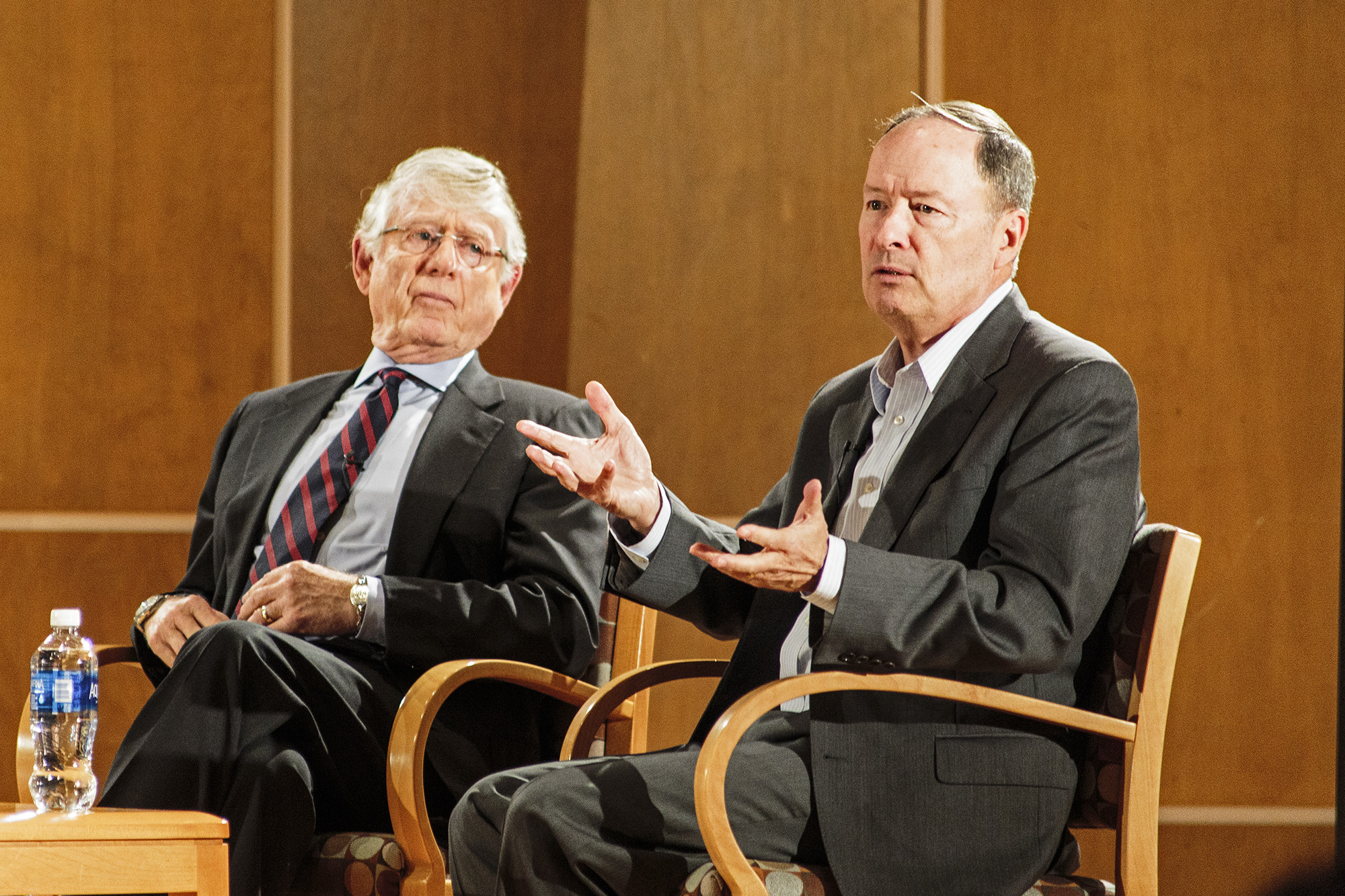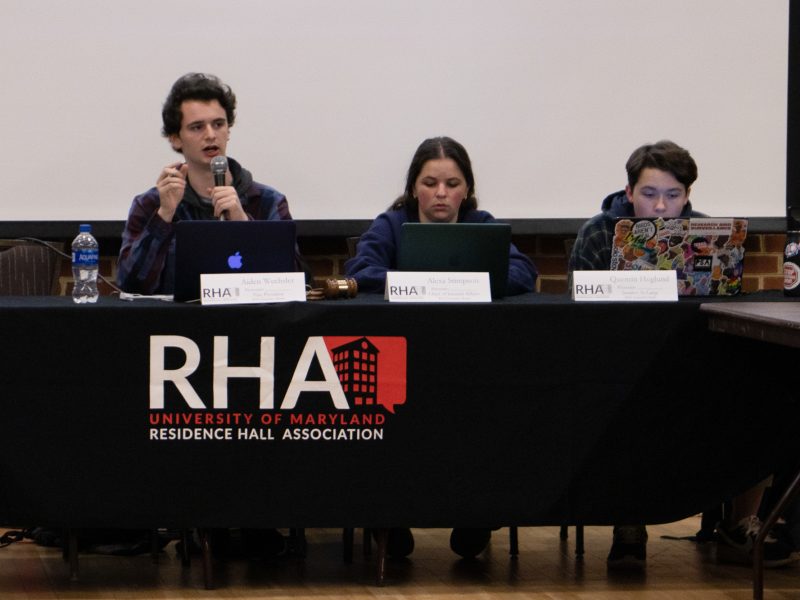By Evan Berkowitz
For The Diamondback
The U.S. military is reactive, broadcaster Ted Koppel told about 75 people in Tawes Hall’s Ulrich Recital Hall Tuesday afternoon. But as it faces down a new cybersecurity threat, he said, it can’t afford to make that mistake.
“We wait until disaster strikes,” said Koppel, who anchored ABC’s “Nightline” for a quarter century. “We wait until Pearl Harbor, 75 years ago tomorrow. We wait until 9/11.”
Koppel joined retired Army Gen. Keith Alexander, the former head of the National Security Agency and U.S. Cyber Command, in a conversation about the country’s cybersecurity preparedness.
Journalism professor Dana Priest, a two-time Pulitzer Prize-winning Washington Post investigative reporter, moderated the event, billed “Weapons of Mass Disruption: Cyberattacks on America and Our Elections.”
Alexander also referenced the Dec. 7, 1941 attack on Pearl Harbor in framing the topic’s exigence.
“If you think about the aircraft [and] the aircraft carrier, both of those were thought not to be weapons of war when they were first designed,” said Alexander, who headed the NSA under two presidents before his 2014 retirement. “When they found out, all the way through Pearl Harbor, everyone said, ‘OK, we’ve got it.'”
The same lessons, he said, should be considered when it comes to funding cybersecurity measures.
“What we’re hearing now with cyber is people saying … ‘How bad could it be?'” he said. “And the answer is: really bad.”
Koppel and Alexander expressed different views on the feasibility of preemptive action in preventing cyberattacks, but agreed more preventative measures ought to be in place.
Alexander repeatedly advocated for development of a “defensible” plan of action and rehearsal of that strategy. He called for such plans to be pursued in tandem with private industry affected by hacks from state and other actors.
Koppel agreed with industry participation, but questioned whether private companies would be sufficiently willing to disclose information to the government, citing difficulties present in a Senate bill intended to address the issue with the electric power industry specifically.
According to Koppel, the bill provided avenues for energy companies to report hacks in their system to the Department of Homeland Security, who could then forward concerns to defense and intelligence agencies. The problem, he said, is that the company and DHS would be permitted to “scrub” the data they submit at each juncture.
“We’re dealing with information that is moving at the speed of light, but we’re taking days, maybe weeks to scrub this information,” he said of the bill. “When Gen. Alexander talks about the capability to defend ourselves against these kinds of attacks, I have to defer to his expertise, but I’m a skeptic.”
Alexander responded that this was “the difference between technically, can we do it, and policy-wise, can we get it done?”
He believes the magnitude of the cyber threat will force the issue, and later advocated for small-scale presentations to industry leaders on the dangers in order to build awareness and cooperation.
Priest also asked about former government contractor Edward Snowden, whose revelations of global surveillance at the NSA occurred during Alexander’s tenure.
The former NSA chief advocated Snowden’s extradition from Russia and prosecution, and Koppel echoed the call.
Lucy Dalglish, dean of the journalism college, said cybersecurity “is one of the most relevant, confusing and unnerving subjects of our time.”
“The University of Maryland is doing work in this area in myriad ways, through research and teaching a pipeline of future talent who will design computer systems, manage data, fight crime and terrorism and develop cutting-edge public policy,” Dalglish said.
An equally important aspect, Dalglish said, “is the role journalists play in covering this complex subject in a comprehensive, authoritative way.”
Koppel agreed.
“We are currently being fed … some real nonsense about what journalism is,” he said.
The rise of citizen journalism, Koppel said, is undermining accuracy of finished product, adding that the field is headed “to hell in a handbasket.”
“The notion that anybody with a laptop can be a journalist is simply pernicious,” Koppel said.
Alexander provided a road map forward for covering cybersecurity as a journalist.
“One of the things that those of you who aren’t technical can do is explain,” Alexander said. “What you can do is help inform that discussion with facts.”



